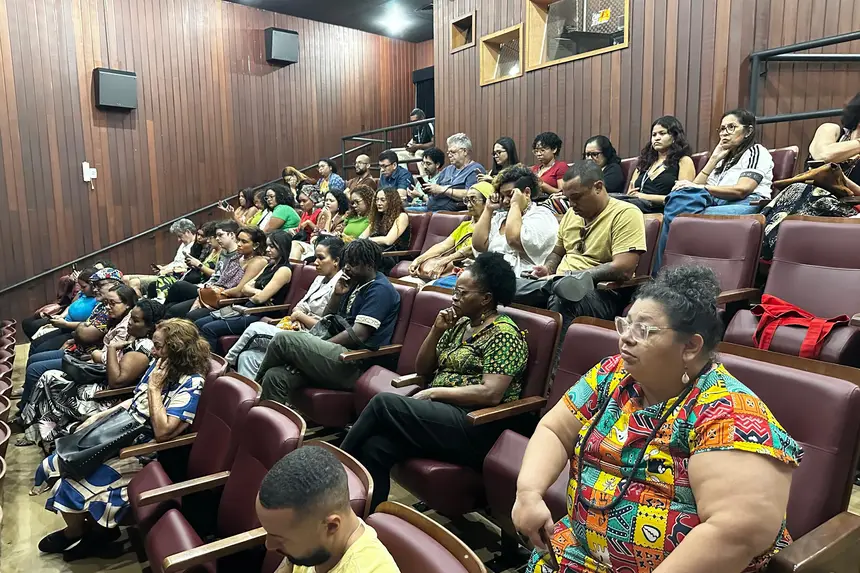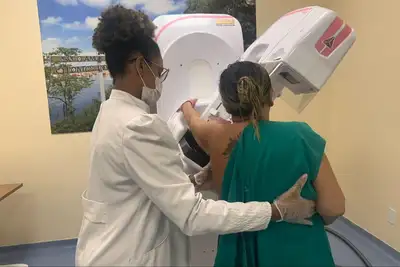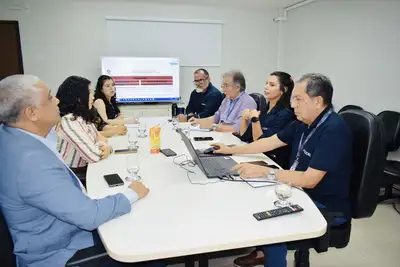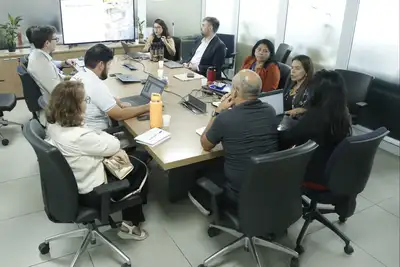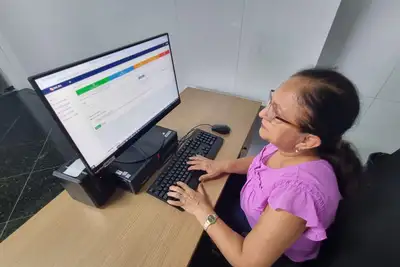Cine Líbero Luxardo promotes double session of the premiere of 'Malês' this Tuesday (16)
The second premiere session will be at 7:30 PM with the presence of actor and director Antonio Pitanga
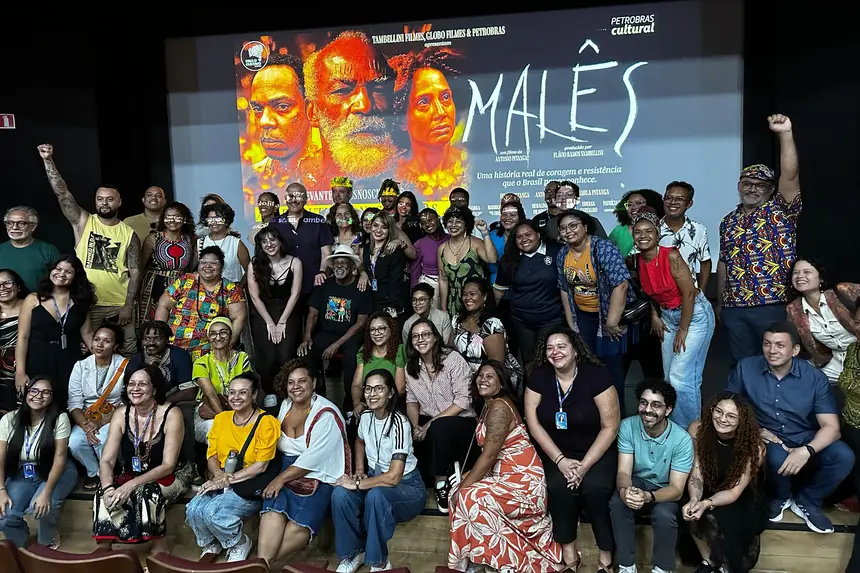
The Cine Líbero Luxardo, in Belém, hosted a premiere session of the film 'Malês', directed by Antônio Pitanga, on the morning of this Tuesday (16). The screening was exclusively for students of the Cinema course at the Federal University of Pará (UFPA) and featured the presence of the filmmaker himself, who also starred in the work. After the screening, the audience participated in a debate moderated by professor and film critic Marco Antônio Moreira, providing a rich exchange of reflections on Brazilian cinema, historical memory, and representation.
“Debating Brazilian cinema is essential, especially works like this one, which rescue stories often forgotten. The presence of Pitanga, an icon of our cinema, further enriches this exchange. It is a privilege to have this direct contact, especially here in Pará, where regional cinema faces so many challenges. Moments like this inspire and teach,” highlighted Moreira.
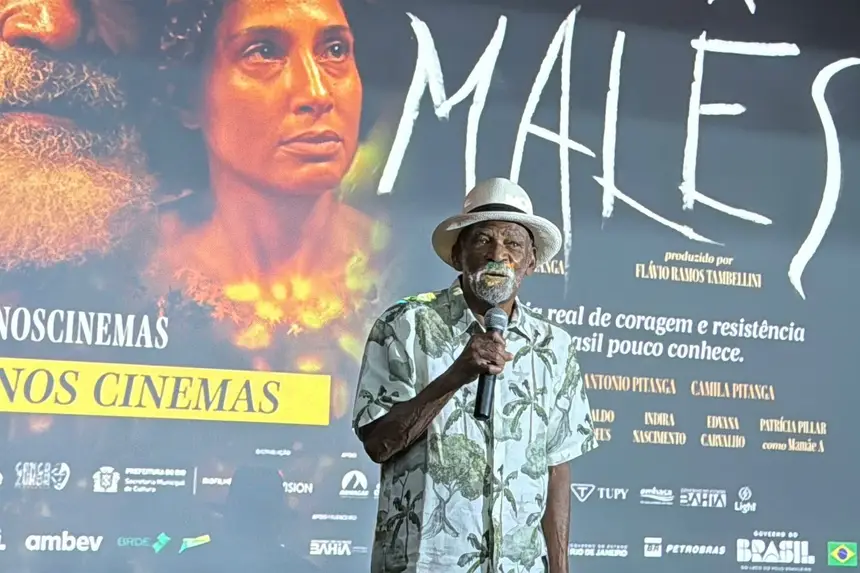
In the conversation with the students, Antonio Pitanga shared details about the production process of the feature film, which took over 30 years to materialize.
"This film portrays the most important uprising of the 19th century. The film is set in 1835, in Bahia, and required a long period of research and preparation. I hope everyone feels touched by this story," said Pitanga, who plays Pacífico Licutan, one of the leaders of the Malês Revolt — a movement led by enslaved Muslims who fought for freedom, equality, and the end of slavery.

Among those present was film producer Rafael Nzinga, director of the production company Cine Diáspora. He took the opportunity to ask questions regarding the film's production:
"I have followed the film's production from afar since the beginning and was very eager to see it. I had the chance to ask about the challenge of portraying the past. Pitanga's answers about listening and collective construction with the screenwriter were inspiring, especially for my current production, which is also period-based. It was a very enriching exchange," Nzinga shared.
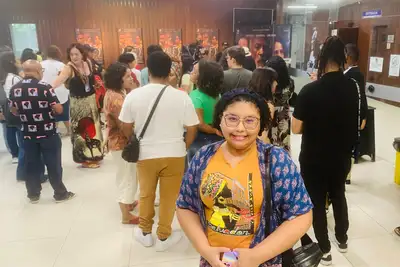
The session also attracted researchers interested in the historical issues addressed by the feature film. This is the case of Andréa Melo, a master's student in Sociology and Anthropology at UFPA.
“The film rescues an important part of the history of the black people in Brazil, especially in Bahia. As a black woman and a researcher of the history of Ver-o-Peso, here in Belém, I felt deeply touched. Our history has been erased for a long time. Seeing this being told in cinema is a form of resistance, learning, and belonging. The debate also impacted my research, reinforcing the importance of knowing the true history of our country,” the student stated.
About the film
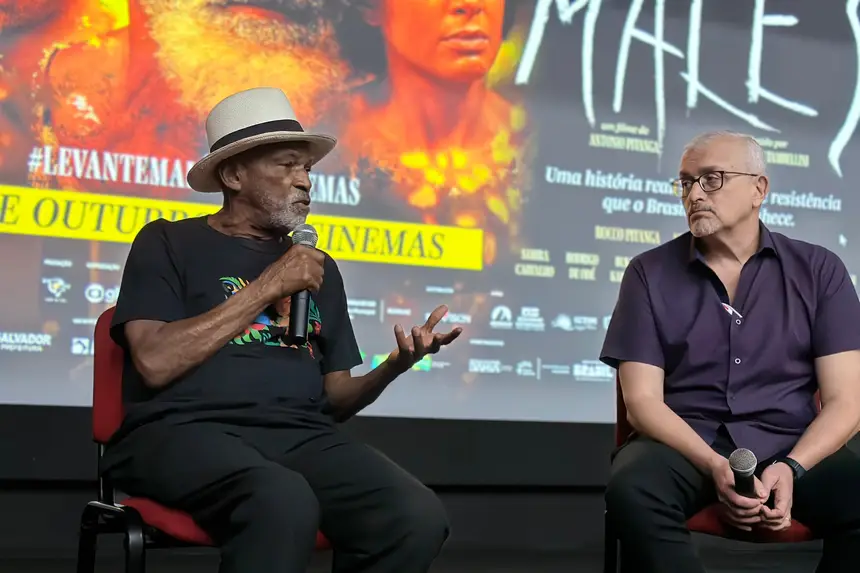
“Malês” is a journey of resistance and courage set in Salvador in 1835. The plot follows two young Muslims who, during a wedding, are kidnapped in Africa and sold as enslaved people in Brazil. Separated by the slave trade, they fight to survive, reunite, and become part of the largest uprising of enslaved people in Brazilian history: the Malês Revolt.
The official premiere of “Malês” takes place this Tuesday (16) at 7 PM at Cine Líbero Luxardo. The event is open to the public, and tickets can be purchased at the cinema box office one hour before the screening. The event promises to be another opportunity for reflection and celebration of Brazilian cinema committed to memory and the struggle for justice.
Text by Maurício Carvalho/ Ascom FCP


